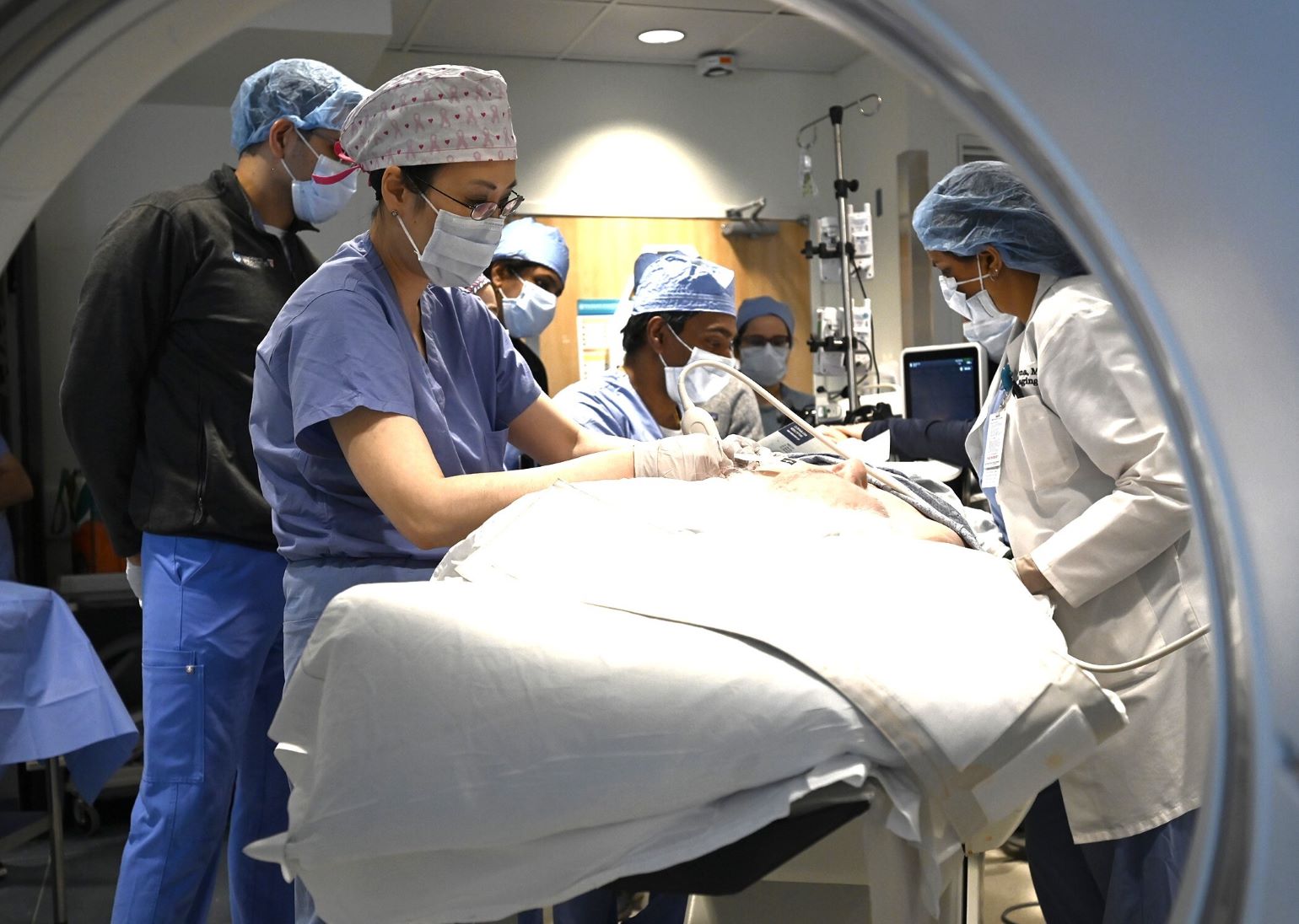Ultrasound-guided Cryoablation Offers Minimally Invasive Alternative for Treatment of Early-Stage Breast Cancer
In This Article
- In 2020, female breast cancer became the most diagnosed cancer in the world
- For select patients, an emerging technique known as ultrasound-guided cryoablation offers a promising alternative to conventional approaches to breast cancer treatment
- In October 2023, Massachusetts General Hospital successfully performed its first case of ultrasound-guided cryoablation in a patient with breast cancer
In 2020, according to a joint report by the American Cancer Society and the International Agency for Research on Cancer, female breast cancer became the most diagnosed cancer worldwide, surpassing lung cancer in claiming the largest share (11.7%) of all new cancer cases.
Subscribe to the latest updates from Radiology Advances in Motion
Fortunately, the medical community has been making tremendous strides in advancing care for breast cancer patients, with an emphasis on personalized treatments with less aggressive interventions for select patients. Ultrasound-guided cryoablation, an emerging technique for management of early-stage breast cancer, has proved particularly promising. Recent studies have shown that, in patients who meet specific criteria, the technique can be a safe and effective alternative to surgery and radiation.
Cryoablation refers to the process of destroying tissue in the body using extreme cold delivered through a probe inserted into the target area. It works both directly, by triggering cell death, and indirectly, by cutting off the supply of blood to the area and thus inhibiting further growth of the tissue.
Clinicians have already used the technique for decades to treat, for example, renal and liver cancers. More recently, physicians have also explored its potential in breast cancer and demonstrated its efficacy for this application in specific patient populations. In a recent review article, "Cryoablation Therapy for Early-Stage Breast Cancer: Evidence and Rationale," Janice Thai, MD, a radiologist in the Breast Imaging Division at Massachusetts General Hospital, describes two clinical trials that have provided significant insights into the safety and effectiveness of cryoablation for the treatment of early-stage breast cancer.

Figure 1
Janice Thai, MD, and colleagues, including interventional radiologist Raul Uppot, MD, recently successfully completed a breast cancer cryoablation procedure, the first time the procedure was performed at Massachusetts General Hospital. Photo courtesy of Susanne L. Loomis, Mass General.
The American College of Surgeons Oncology Group (ACOSOG) Alliance Z1072 trial (NCT00723294) explored cryoablation as a non-surgical treatment for early-stage breast cancer in a cohort of 86 patients with a median age of 62. All patients underwent surgery within 28 days of cryoablation. The primary goal was complete tumor removal, defined as no residual invasive or ductal carcinoma in-situ within the ablation zone. The results showed 92% complete ablation for tumors 2 cm or less, and 100% for tumors less than 1 cm.
The ICE3 trial (NCT02200705) also assessed cryoablation therapy as a non-surgical treatment for early-stage breast cancer, in this case focusing on a primary outcome of ipsilateral breast cancer recurrence. 194 patients with a mean age of 75 underwent cryoablation treatment. After 34.8 months of follow-up, only 2.1% of the patients experienced local tumor recurrence. At the same time, 95% of patients and 98% of physicians were satisfied with the cosmetic outcome.
While longer follow-up is needed to determine the longer-term benefits, Dr. Thai says, the two trials described above and other, smaller studies, establish the safety and efficacy of cryoablation for the treatment of early-stage breast cancer in patients who meet specific criteria—those who have low-risk tumors 1.5 cm or less in diameter.
Cryoablation offers a range of advantages. It is an outpatient procedure that does not require the patient to undergo sedation or anesthesia. As such, the recovery time is much faster than with surgery and the risk of complications is much lower. It is also considerably less expensive than surgery and is associated with excellent cosmetic outcomes with minimal scarring.
The first case of breast cancer cryoablation was performed successfully at Mass General on October 24, 2023, as a collaborative effort between breast imaging, interventional radiology (Dr. Raul Uppot) and surgical oncology (Dr. Francys Verdial). The procedure was performed by Dr. Thai under local anesthesia, with the patient completely awake and alert throughout the procedure.
"We are excited and proud to offer this alternative treatment option to select patients with breast cancer," she says. "As we gain experience with this treatment, more data will help us understand the long-term benefits and limitations of this procedure."
Learn more about breast imaging at Mass General
Schedule an appointment at the Department of Radiology